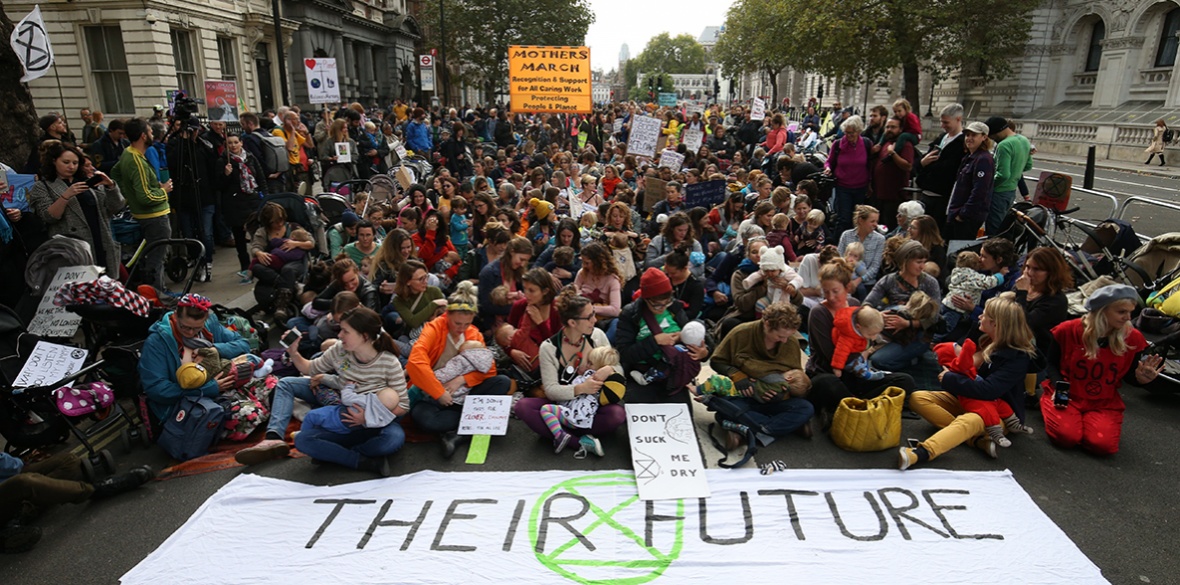This is the last article you can read this month
You can read more article this month
You can read more articles this month
Sorry your limit is up for this month
Reset on:
Please help support the Morning Star by subscribing here
THE upcoming G7 Summit in Cornwall is a meeting of the world’s wealthiest countries. The US, Japan, Germany, UK, France, Italy and Canada.
They meet together regularly to try to determine the course the world will follow, with their own interests in the foreground. They pose this as “global leadership” in the framework of “an assertion of Western values.”
Their vaccine apartheid response to the threat of Covid shows what this can look like. There is every risk that this will be replicated in their approach to the climate crisis.
The statement below is a message from trade unionists and the wider environment movement in the UK to the G7 and our colleagues around the world; not as supplicants but as witnesses.
We are all on one planet. There’s nowhere else we can move to. Fail to keep global heating below a 1.5°C increase and we face a future in which much of the world is threatened by scarcity of food and water, frequently battered by climate-induced extreme weather events and more frequent pandemics; with parts of an increasing number of countries becoming unliveable.
This summit and the COP26 conference in November matter because what happens in the next five years is make or break.
If the world’s wealthiest countries continue to move too slowly to curb their own carbon emissions, continue to invest in and boost fossil fuel energy and production, fail to make a just transition at home while denying the global South the resources it needs to deal with climate impacts, their pretensions to “global leadership” will fail the test.
A $100 billion a year transfer to the developing world to make transition possible was pledged at Copenhagen and built into the Paris Agreement to be met by 2020. It has not been.
This is a tiny fraction of the $3.8 trillion that global banks have invested in fossil fuels since the Paris Agreement, and a bottom line that is well within their capacity; less than a tenth of the combined G7 military budget of $1,043bn last year.
The UK has ring-fenced and frozen its global climate finance contribution at around $3bn a year up to 2025 while cutting overseas aid overall and increasing military spending by $8.5bn a year for the same period.
Similarly, US military spending has been increasing by just under $40bn a year since 2015, while its global climate finance pledge is slated to rise from a dismal $2.7bn a year to just $5.4bn by 2025. As Ian Dury might have said, “What a waste!”
It is past time for the G7 to wake up to the real threat that in our lifetimes the conditions we need to sustain a viable civilisation burn away; and that they can’t deal with that by picking fights with parts of the developing world while our environment falls apart. They need to collectively and rapidly transfer fossil fuel investment into renewables, creating solid unionised jobs as they do, co-operate with other countries and pay the money the developing world needs to avert the disaster which will blow back in all our faces soon enough if they don’t.
The countries meeting at the G7 in Cornwall between June 11-13 comprise just 10 per cent of the world's population but hold 62 per cent of the world’s wealth and spend more on their militaries than the rest of the world put together.
They are responsible for the lion’s share of historical carbon emissions – and are still investing over $100bn a year into coal, gas and oil.
If the world is to avoid catastrophic climate breakdown the G7 meeting needs not only to commit to:
• Single mindedly going flat out for domestic transition to sustainability, but also to
• Stop financing and subsidising fossil fuels and
• Pay its dues to the international community; including the $100bn a year pledged at Copenhagen for the developing world to cope both with immediate climate impacts and to develop without fossil fuels and
• Seek global co-operation not conflict
Claims to “global leadership” will be judged the world over against these benchmarks.
We call on the G7 to meet them.
Paul Atkin, editor of the Greener Jobs Alliance Newsletter which can be accessed at https://www.greenerjobsalliance.co.uk/
Tahir Latif, secretary Greener Jobs Alliance
Kevin Courtney, joint general secretary National Education Union
Mary Bousted, joint general secretary National Education Union
Richard Dixon, director, Friends of the Earth Scotland
Mark Serwotka , general secretary PCS
Manuel Cortes, general secretary TSSA
Meg Baker, director of education, Students Organising for Sustainability (SOS-UK)
Ellen Fearon, NUS-USI president National Union of Students UK
Ben Chacko, editor Morning Star
Sarah Woolley, general secretary BFAWU
Richard Burgon MP
Diane Abbott MP
Tamar Singer (UKSCN)
Stephen Smellie (deputy convenor Unison Scotland)
Sign our statement here: https://forms.gle/85dRkDyWp1iqtLpS6
Clarification
The author of the article G7 the world is watching (Morning Star 5/6/21) was Paul Atkin. The other names listed were initial signatories to the statement - https://forms.gle/85dRkDyWp1iqtLpS6 - and bear no responsibility for the content of the rest of the article. The statement itself is from trade unionists and the wider environment movement, not just trade unionists and socialists and has now been signed by Caroline Lucas MP among others.











